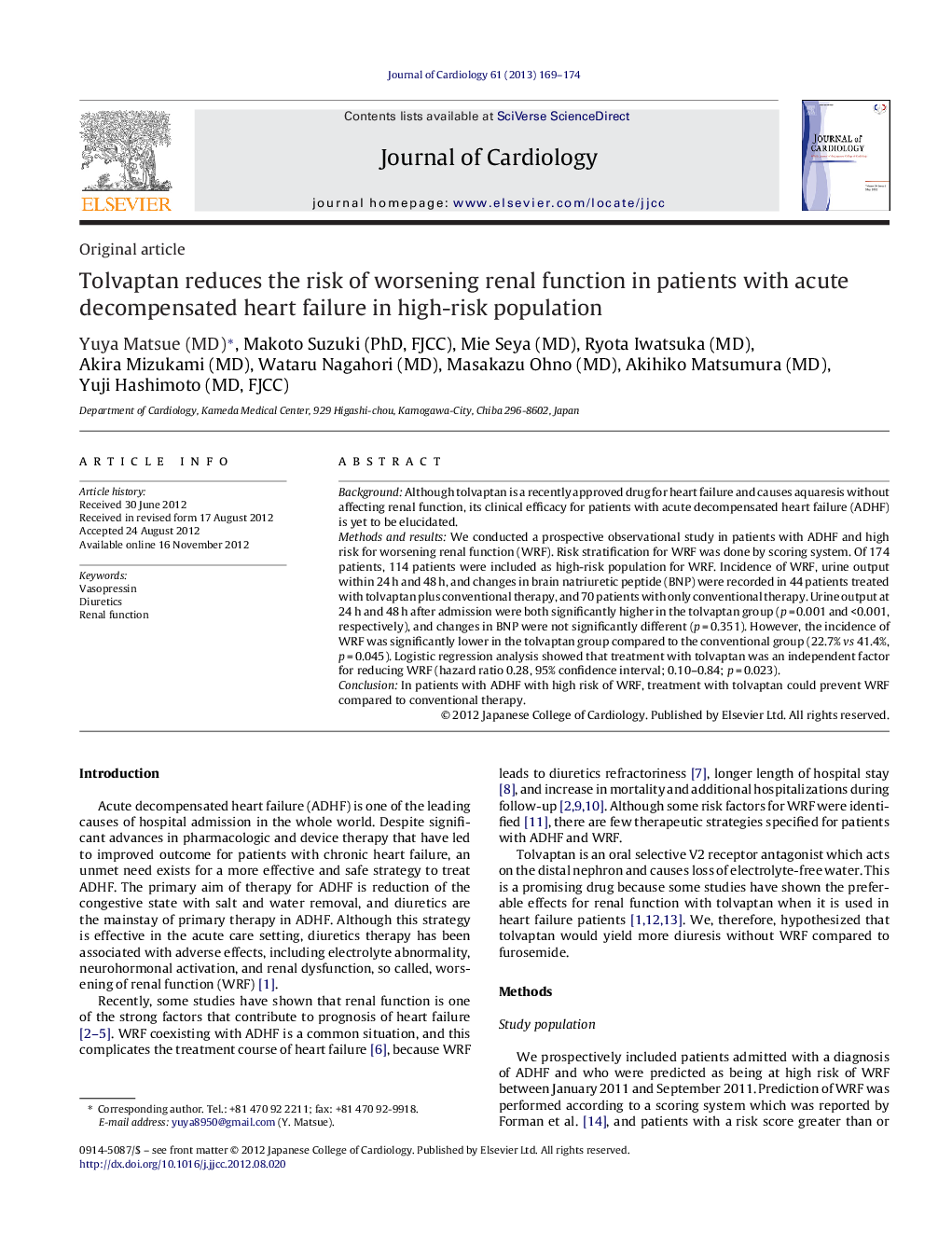| Article ID | Journal | Published Year | Pages | File Type |
|---|---|---|---|---|
| 5984228 | Journal of Cardiology | 2013 | 6 Pages |
BackgroundAlthough tolvaptan is a recently approved drug for heart failure and causes aquaresis without affecting renal function, its clinical efficacy for patients with acute decompensated heart failure (ADHF) is yet to be elucidated.Methods and resultsWe conducted a prospective observational study in patients with ADHF and high risk for worsening renal function (WRF). Risk stratification for WRF was done by scoring system. Of 174 patients, 114 patients were included as high-risk population for WRF. Incidence of WRF, urine output within 24 h and 48 h, and changes in brain natriuretic peptide (BNP) were recorded in 44 patients treated with tolvaptan plus conventional therapy, and 70 patients with only conventional therapy. Urine output at 24 h and 48 h after admission were both significantly higher in the tolvaptan group (p = 0.001 and <0.001, respectively), and changes in BNP were not significantly different (p = 0.351). However, the incidence of WRF was significantly lower in the tolvaptan group compared to the conventional group (22.7% vs 41.4%, p = 0.045). Logistic regression analysis showed that treatment with tolvaptan was an independent factor for reducing WRF (hazard ratio 0.28, 95% confidence interval; 0.10-0.84; p = 0.023).ConclusionIn patients with ADHF with high risk of WRF, treatment with tolvaptan could prevent WRF compared to conventional therapy.
